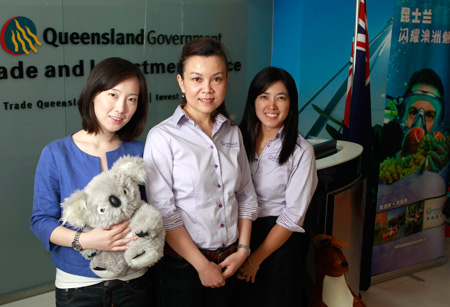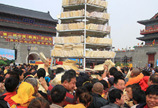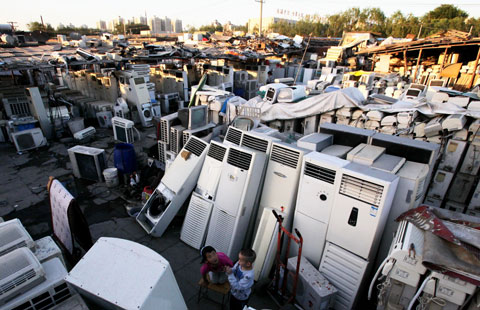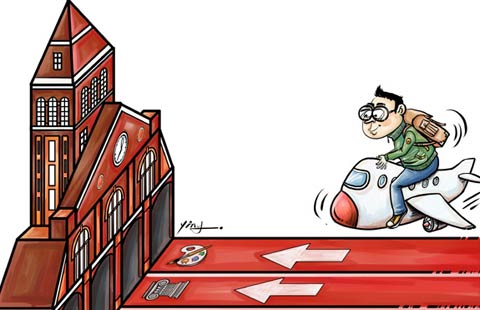Profiting from a fresh outlook
By Hu Yongqi (China Daily) Updated: 2012-10-10 08:22|
 |
|
Grace Pan (center), Tourism Queensland’s international director for the Chinese mainland, Hong Kong and Taiwan, and her colleagues in their Shanghai office. PHOTO BY GAO ERQIANG / CHINA DAILY |
Despite being raised in a Chinese family in California, Jamie Lee regarded herself as a Westerner before she moved to Beijing 15 years ago. She was unable to speak Chinese and had no clue about the country's traditions. All she knew was US culture.
However, since 1997 she has learned the language and local business methods after working as a manager in a dental hospital in the capital.
"The way Chinese officials and travelers interact with each other is very different from the Americans I was familiar with," she said. "I had to learn everything from Chinese friends and then adapt that knowledge to business situations."
In 2005, Antonio Villaraigosa, the mayor of Los Angeles, recognized the potential of China's market. Villaraigosa's interest resulted in the establishment of the Los Angeles Tourism and Convention Board's Beijing office.
In 2006, Lee joined the office as regional director, heading up a team to promote LA as a destination for Chinese tourists. "Many people thought the board could hire a public relations company or an agent to promote our services. But the mayor decided that a dedicated office was essential, otherwise our services would not always be the main focus," she said.
Through the work of Lee's office, the number of Chinese visitors to LA has increased by 50 percent every year since 2006, rising to 130,000 in 2011.
In the past six years, the office - the only cultural and business exchange bureau established by a foreign city in Beijing - has functioned as a bridge connecting the cities, said Lee.
Currently, more than 100 offices have been established by foreign governments - mostly at state level - in Beijing, Shanghai and Hong Kong to promote trade and services. Most of the offices have a localized feel, with a chief representative and two or three Chinese employees.
The offices undertake specific tasks, such as investment promotion, to find new consumers and investors. They help overseas businesses to understand the local policies related to trade or investment, such as taxation and land rents.
Close to the customer
Beijing is one of four overseas offices the LA Tourism & Convention Board has established. Compared with hiring local agencies, foreign governmental departments have discovered the benefits of setting up offices in China.
The German National Tourist Board has two bureaus in China, one in Beijing and the other in Hong Kong. "We felt it was important to be in the market and close to the consumers and the local travel industry. We also need to understand the demands, the changes and the trends, and try to position our brand and products successfully," said Oliver Sedlinger, marketing director of the Beijing office.
- Seven villagers murdered in N China
- China steps up tobacco control efforts
- Five jailed for separatism in Xinjiang
- Letter asks for leniency in poisoning case
- Antibiotics in surface water pose 'indirect health risk'
- Tianjin airport opens up transit link to Beijing
- High levels of antibiotics in China's major rivers
- China to dig tunnel for Asian rail system
- Bering strait line to US possible, experts say
- China: Stop oil rig harassment







